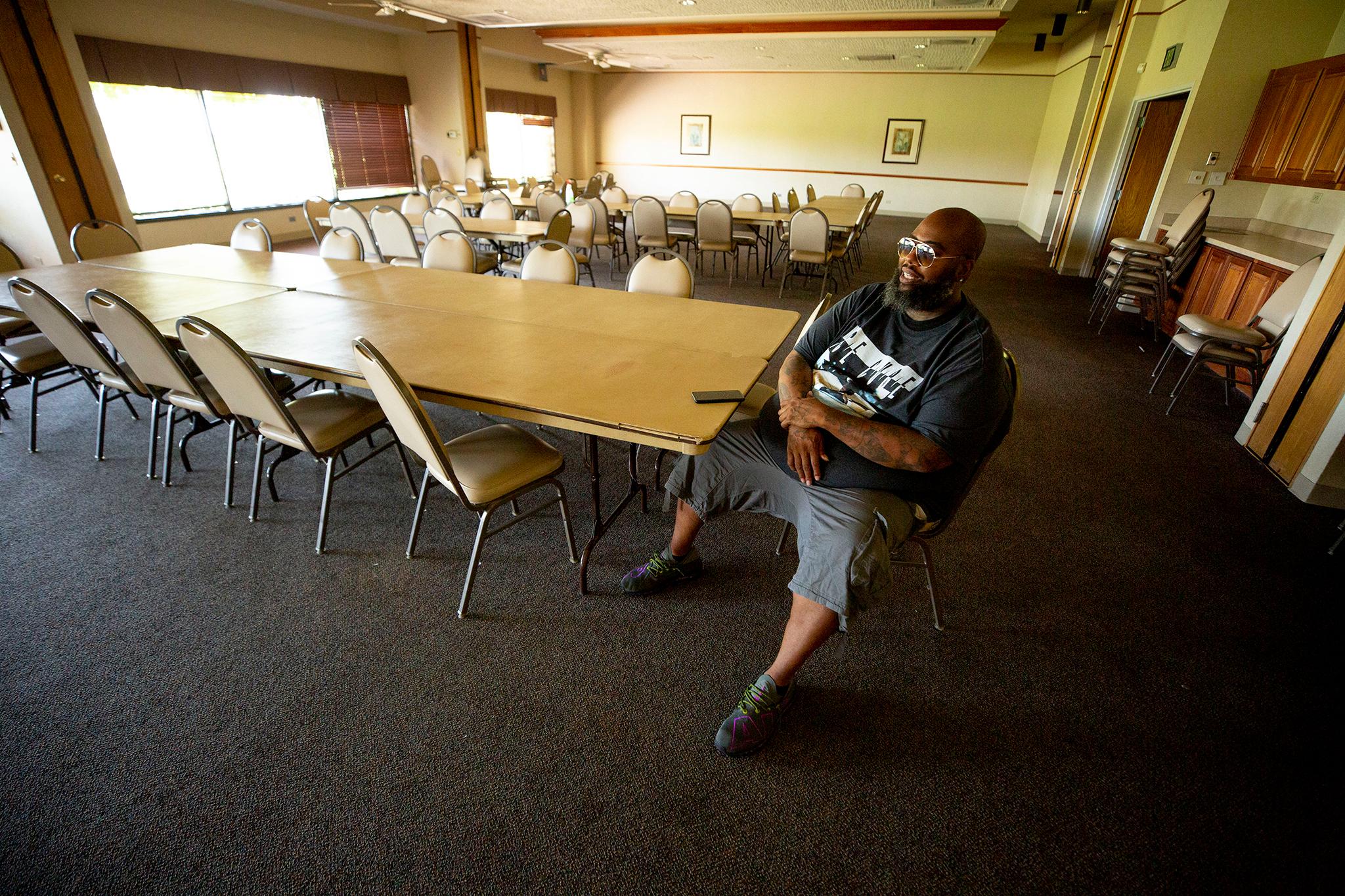Sitting at a table inside the Park Hill Golf Course clubhouse, Jason McBride described two pandemics.
"We have COVID, and then we have one with youth violence," the youth advocate said. "We're losing kids every single day. And not just to the graveyard, but to the judicial system. We're losing an entire generation."
Back in May, McBride warned that the economic downturn resulting from coronavirus lock-downs might ripple through Denver's Black communities in the form of violent crime, arguing that systemic inequities that Denverites of color had long experienced would become more pronounced during the pandemic. He feared hopelessness would lead to bloodshed. A few months later, his prediction seemed to be coming true. Between Jan. 1 and July 13, the city saw more murders and assaults than any year since 2015.
But that clubhouse, vacant until recently, represents a lifeline for kids at risk.
McBride has spent years trying to steer young people away from gangs and violence. As Denver Public Schools prepared to begin the new year with virtual instruction, he saw a way to continue that work while ensuring kids get the support they need to learn in this unprecedented moment. He recently signed a year-long lease to fill Park Hill's clubhouse with students, teachers, computers and meals. When online schooling begins, students who need supervision, technical support and mentoring will have a safe place to go.
"There's a real chance of our kids falling behind, further behind," he said. "It will be a place where kids can come get help with work. They can log on here to their classes. We'll have everything they'll need."
In a way, McBride is responding to the "learning pods" parents of means are setting up for their children. The idea is to pool resources and time so working parents don't need to keep their eyes on kids all day while they attend school through a laptop.
However, questions of equity have emerged as some wealthy families in Denver have talked about hiring teachers or paraprofessionals to manage learning at home. Advocates say students who can't access the internet, let alone a private teacher, are being left out of the conversation. If they're left alone to tune in remotely, they may not show up at all.
"We're not afforded the luxury of some communities, when one parent is able to stay at home and make sure these kids are doing what they're supposed to do, that's not whats going to happen," McBride said. "Our kids are going to not log on because they don't have any supervision, which leads to all kinds of other things."
Guns are more accessible than ever, he said. His time working to prevent youth violence, not to mention the recent rise in murder and assault, makes him worry unsupervised time could lead to more tragedy.
Corrie Whitfield teaches kindergarten in Aurora and has a daughter who will be a senior in Denver this year. The access issue looms large, she said, especially as the first day of school draws closer. (Denver's and Aurora's school districts both pushed their opening days back to Aug. 24.)
She was glad to hear about McBride's community pod project, which she thinks can help close the gaps kids may face.
"The school that I'm at is 90 percent free and reduced lunch, so I know we're going to have these issues. Unfortunately we're not going to find out who those kids are until we start school," she said. "The learning pods that are set up, a lot of those families have access and have the means to participate in things like that. I'm sure if you poll the neighborhood in which I teach, they wouldn't even know that exists. So that is definitely in the forefront of my mind.
"That opportunity is huge," she added. "Because families that I'm serving, they work all day. And who is going to watch the kids, and who is going to get them online?"
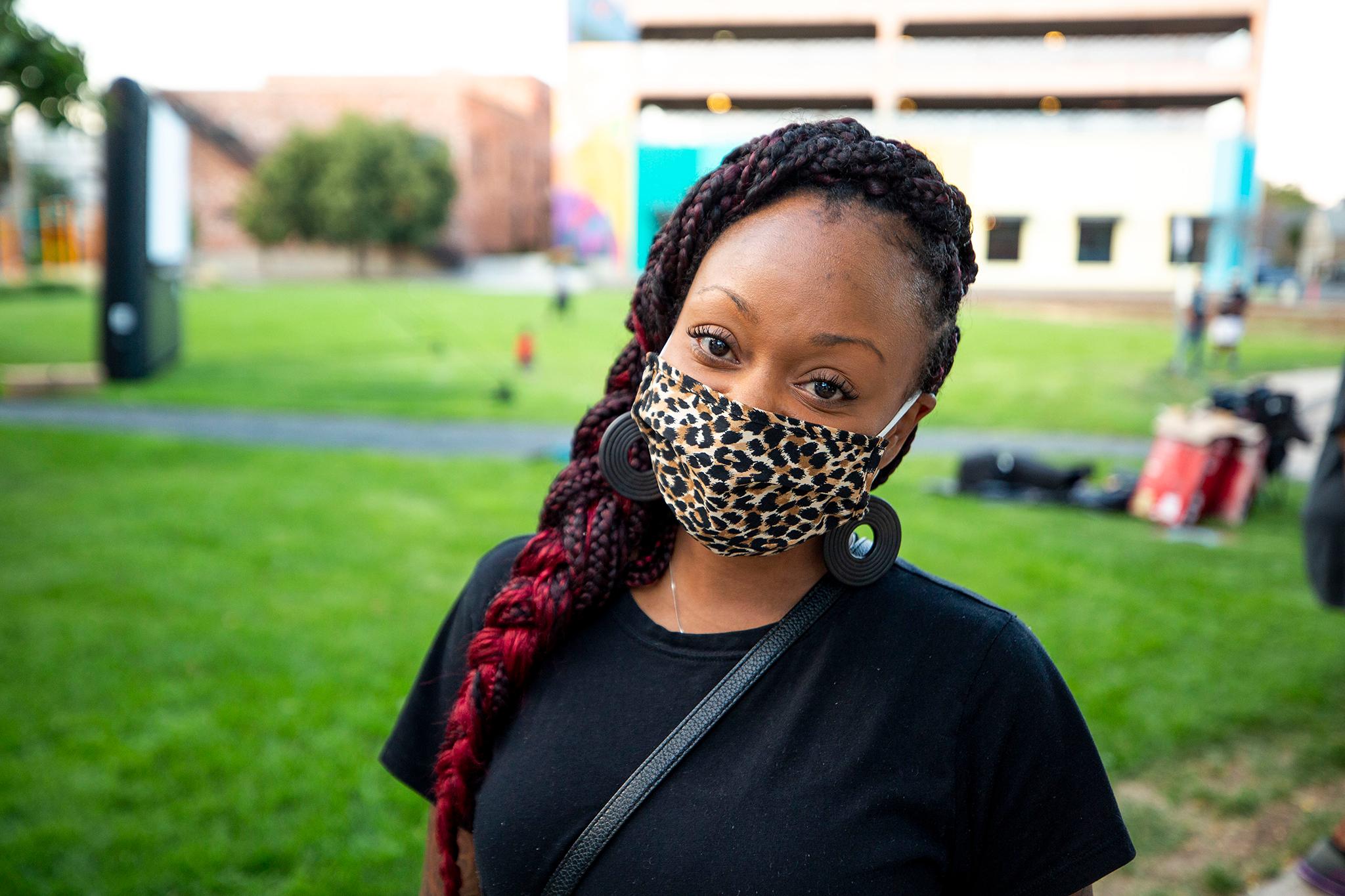
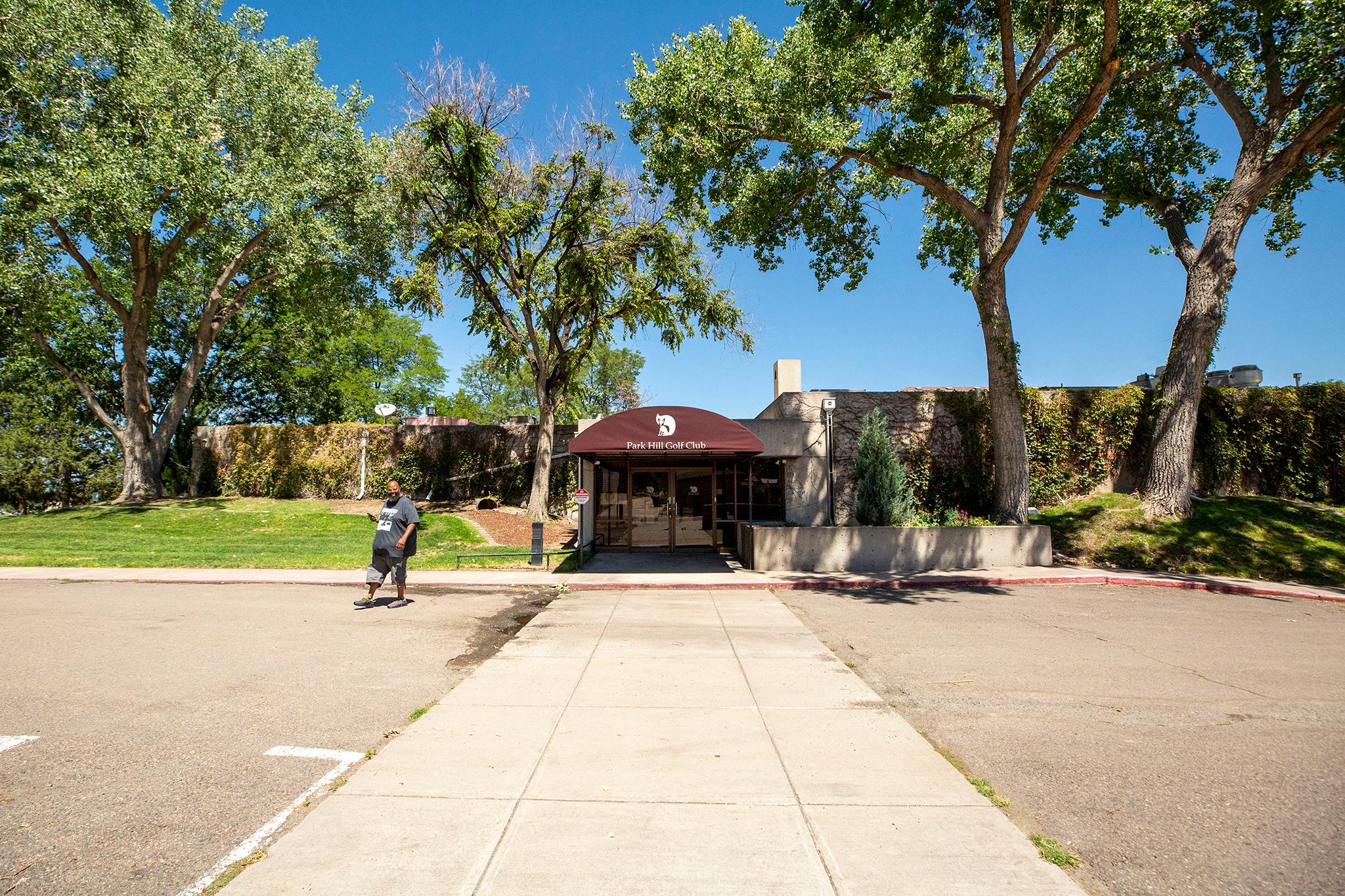
McBride plans to keep the golf club's doors open to anyone who needs the space. For some students, it may be their classroom. For others, the space may become a daycare or after-school program. He hopes to make room for counselors and barbers, who could offer free services every now and then. The building is equipped with a commercial kitchen, so he's working to bring a restaurateur in to teach kids about cooking and running a business.
"This is something that I think is desperately needed," he said. "Number one: It's a safe place for kids to be."
Whitfield said difficulty accessing education can translate to youth violence. For McBride, the two are inextricably linked.
"Accessibility is huge, and that big divide of means versus no means, it is institutional racism and it stems everywhere," Whitfield said. "It sucks, for lack of a better way to say it."
McBride recently visited schools in the Cherry Creek School District and those in Denver attended by kids he's worked with. It was part of an "equity study" to try to understand why his students feel hopeless.
"What we learned was fascinating," he said.
It wasn't that students in Cherry Creek were wealthy. It was they had everything they needed to thrive. One school had a food court. Another had a ropes course. "Those kids are walking around with not a care in the world but school."
The students he works with in Denver have a lot to worry about. The attitude he often observes is: "Either the police are going to kill me or one of these people that I'm dealing with in the streets is going to kill me." It can foster a sense of defeat that can drive kids toward dangerous situations and distract them from schoolwork.
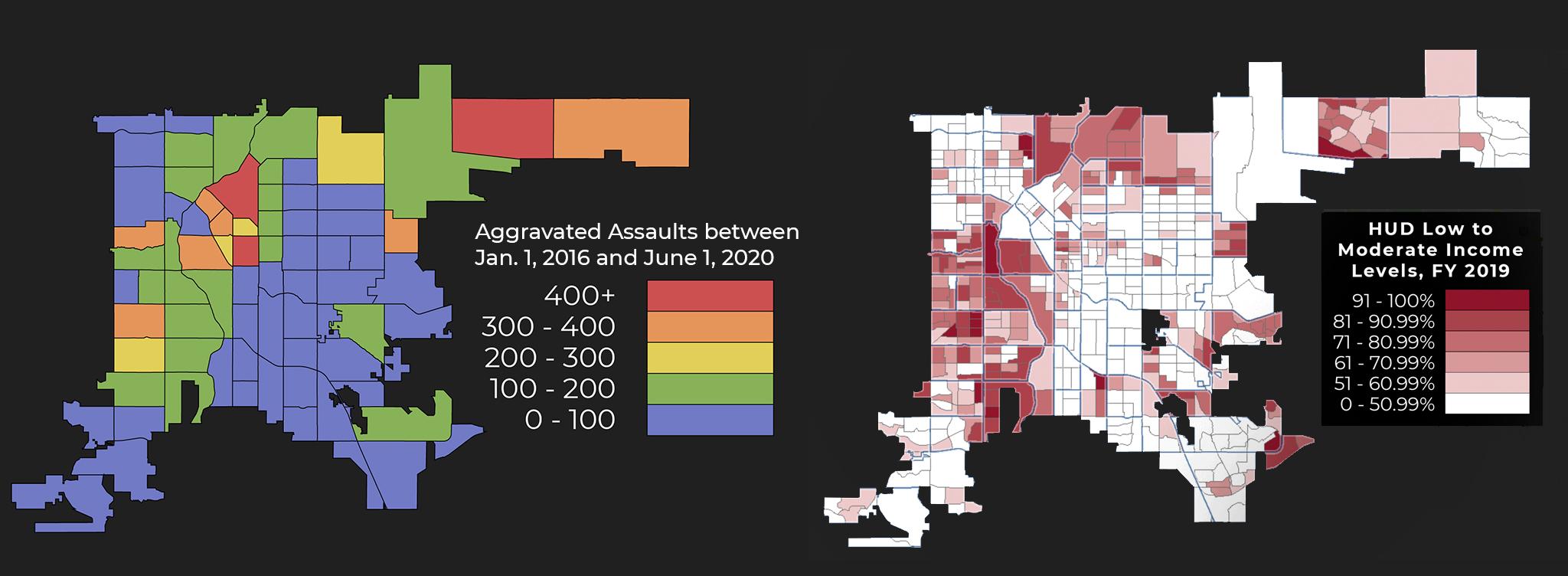
He hopes the safe learning space in Park Hill will help erode the obstacles blocking neighborhood students from seeing a better future, but he's worried it won't be enough.
"I would love to say, yeah, we can open up this space and it's gonna curb the violence in northeast Denver and Park Hill, but no. We're going to get in here, and we're going to help some kids and we're going to help them with their schoolwork and we might even help them turn the corner," he said. "But that's just a small drop in an ocean in what is going on in this community. It's going to take 20 of these spaces if we want to really start to affect and make change."
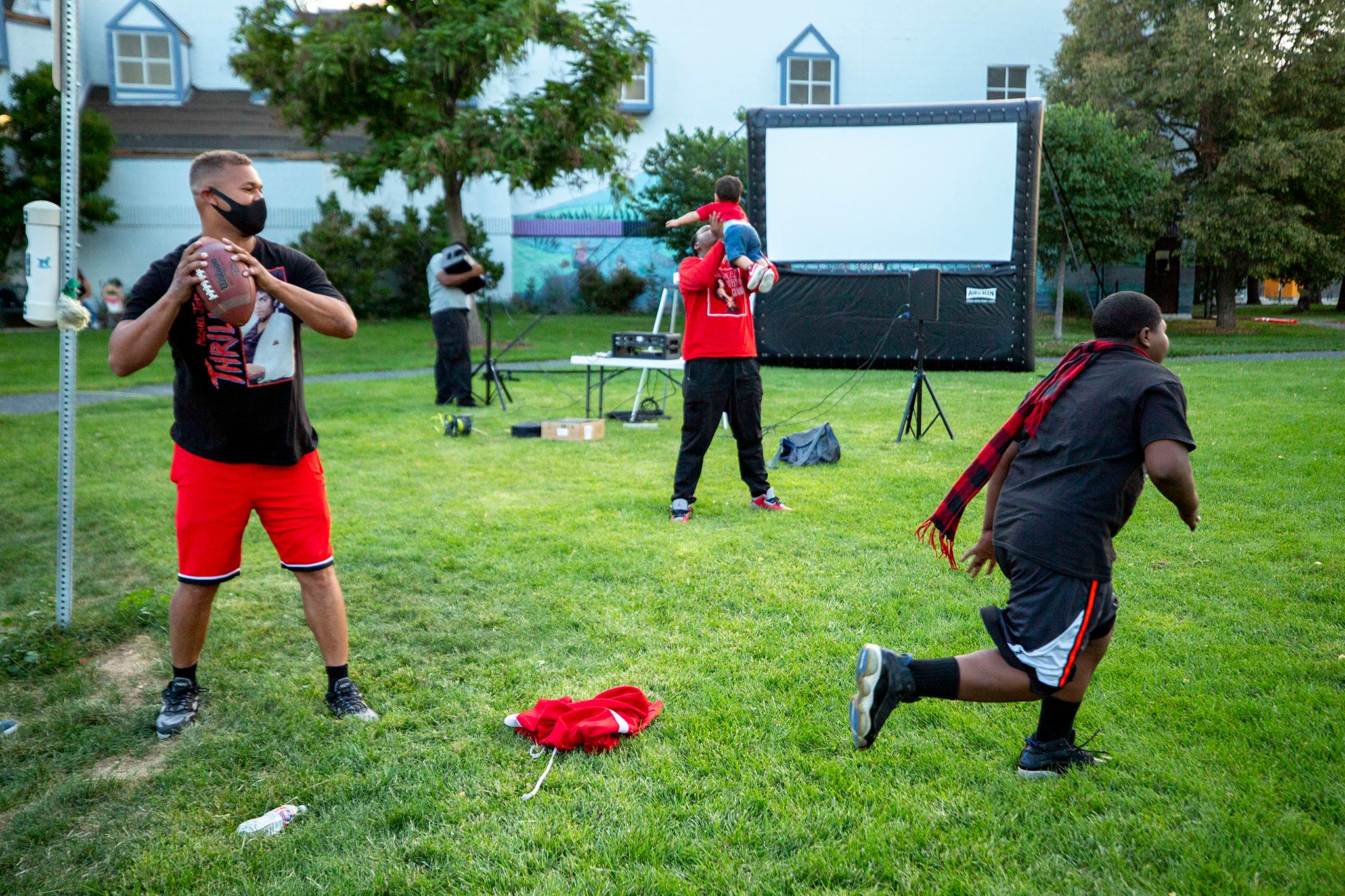
At least one other safe learning space in Denver is planned to open for the new school year. Joel Hodge, co-founder of the Struggle of Love Foundation that's been running a much-needed food pantry in Montbello, said he'll be making room for students where he distributes food every week.
Outside of school hours, Whitfield has helped run safe activity zones that give young people a positive place to hang out.
McBride is working to spread the word, both to attract students in need and residents with means who may want to help his cause.

